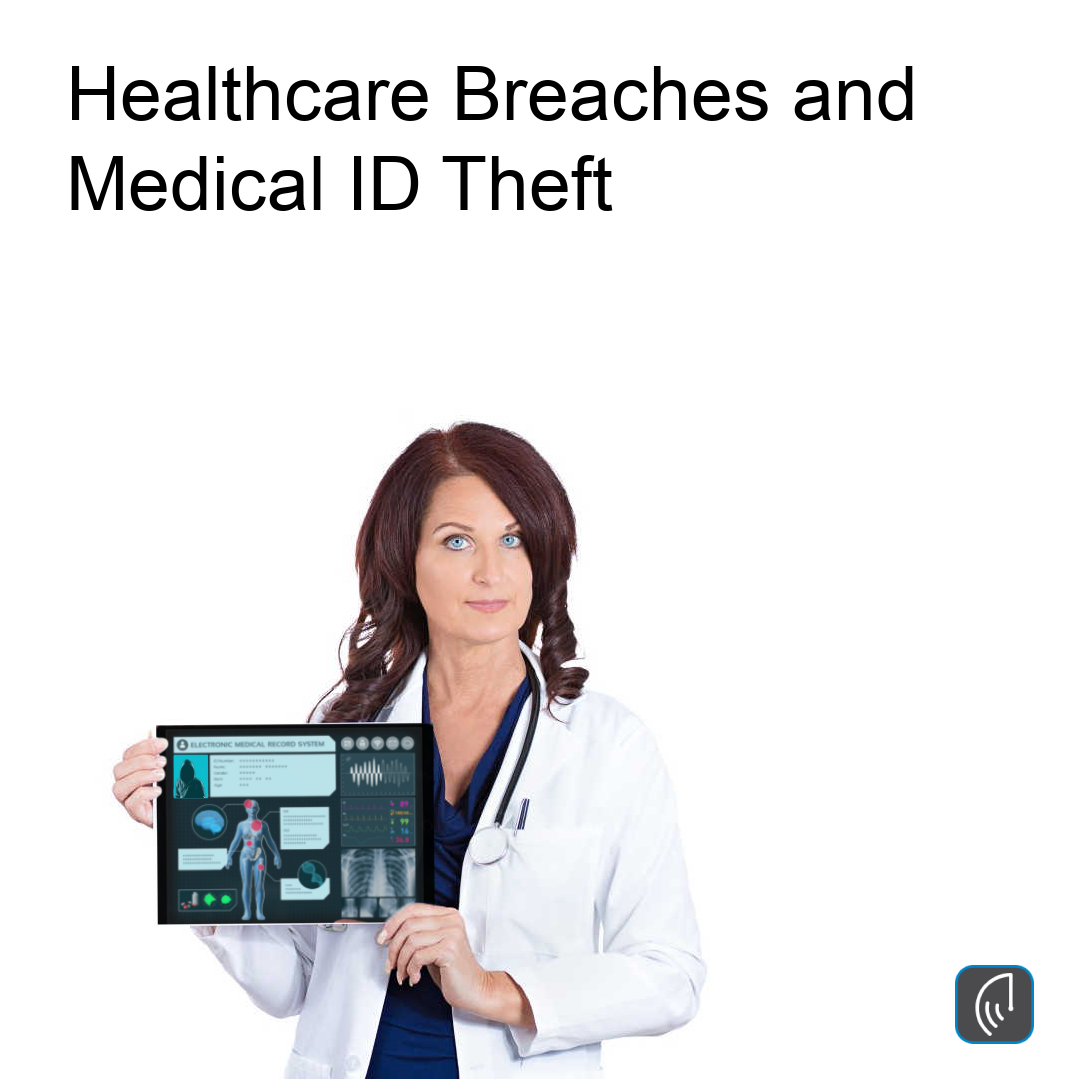Do healthcare breaches and Medical ID Theft go hand in hand?
I first want to refer back to an article from about two years ago titled Telehealth Creates Creates Cyber Risks. In the article, I stated that “the COVID-19 pandemic has increased consumer risks through cyber scams and medical identity theft.”
Fast forward one year to August 4, 2021 article titled Healthcare Data Breaches Most-Common Threats to Date in 2021. The article states, “the healthcare sector is once again in the top position as the most breached economic sector” and “healthcare has been at or near the top of the (data breach) chart since at least 2017.”
And again this year, we have seen the trend continue. Hackers hit health companies, insurers with increasing regularity – Inside
But Why Medical Records?
A primary reason ID theft criminals and cyber thieves target healthcare providers is the Electronic Health Record or EHR. EHR is the collection of patient information into a digital record. EHRs significantly improve administrative efficiency and medical proficiency through shared networks and exchanges.
A typical EHR includes
- medical history,
- medications,
- allergies,
- immunizations,
- laboratory test results,
- and radiology images.
Your EHR also includes your
- billing information such as personal information (e.g. date of birth, home address, and Social Security Number),
- insurance information,
- and financial information (e.g. credit card number).
Unfortunately, ID theft criminals and cyber thieves are mostly interested in your personal, insurance, and billing information. For this fact alone, healthcare data breaches continue to be “in the top position as the most breached economic sector.”
Things to Think About
Every health insurance plan you have ever had has your and your family’s Social Security Number (SSN). Almost every healthcare provider (such as a doctor of medicine or osteopathy, podiatrist, dentist, chiropractor, clinical psychologist, optometrist, nurse practitioner, nurse-midwife, or clinical social worker) that you or a family member have been to has your Social Security Number.
So back to the title of this article – Do healthcare breaches and Medical ID Theft go hand in hand? – the answer is a resounding YES based on the Personal Health Information or PHI that is collected, stored, and transferred through your Electronic Health Record.
To make matters worse, this article titled Organization Wide PHI Access is Commonplace at Most Healthcare Orgs reported that “nearly 20 percent of (PHI) files were open to every employee at a given healthcare organization starting on their first day of employment, pointing to troubling data security issues and poor PHI access controls.”
Based on the fact that cyber thieves are stealing healthcare data and are finding new ways to monetize phishing (fraudulent emails), vishing (fraudulent phone calls and voice mail messages) and smishing (fraudulent text messages), consumers need to pay attention to data breach news in general and healthcare data breach news in particular.
To conclude, consumers can also reduce their risk of medical identity theft by safeguarding their health insurance cards, and regularly reviewing credit reports, medical benefit explanations, medical bills, and prescription bills.
